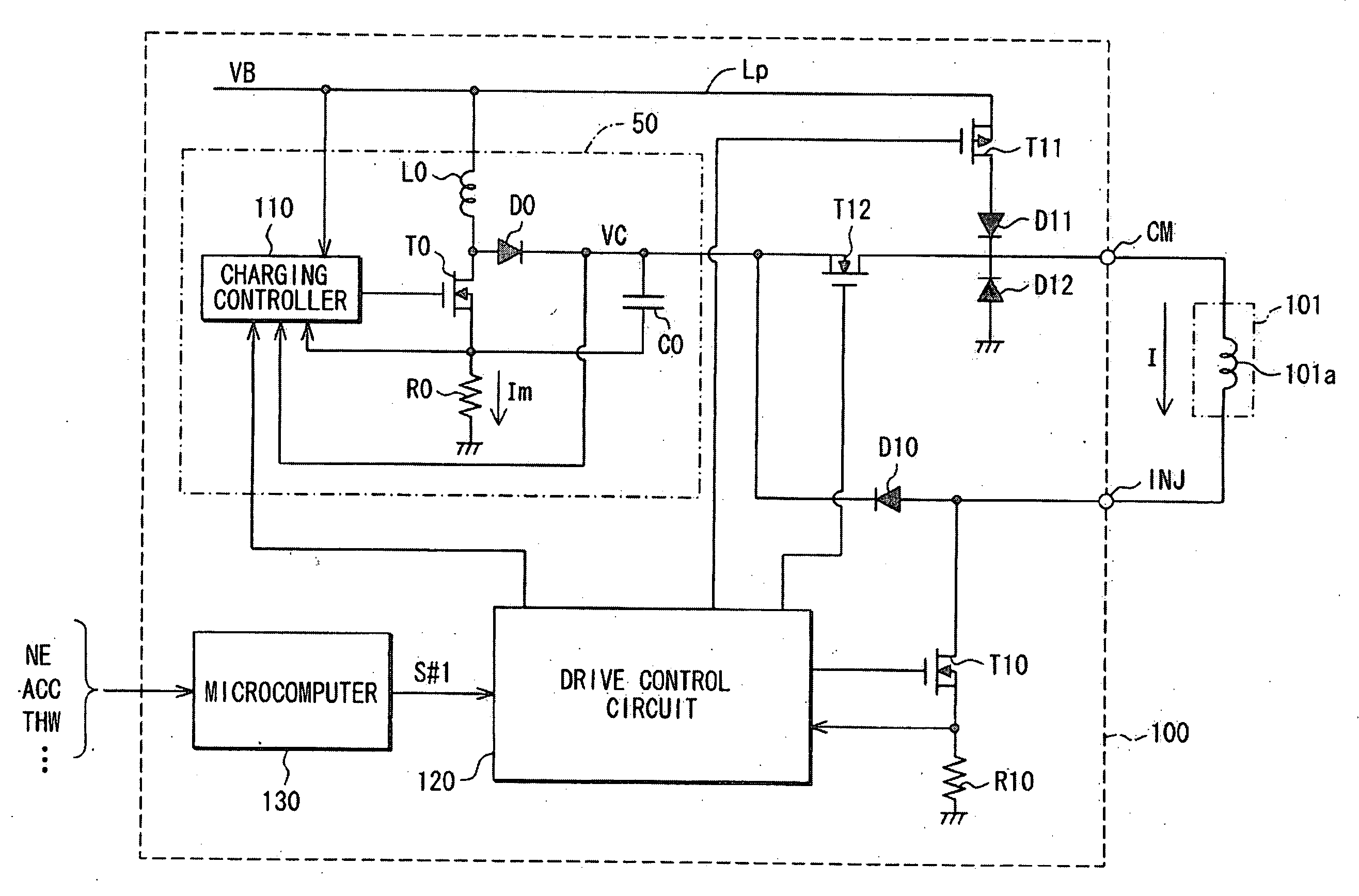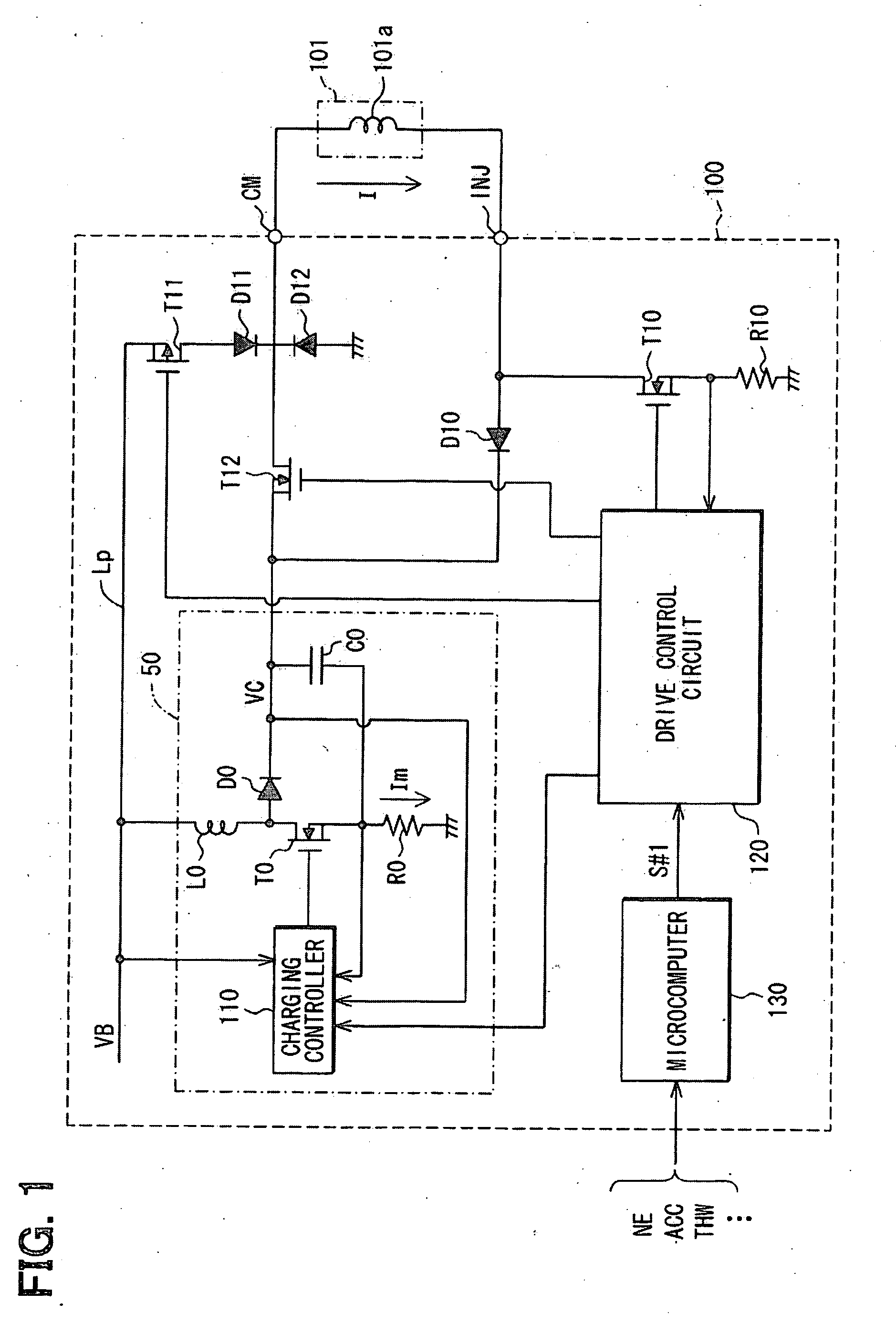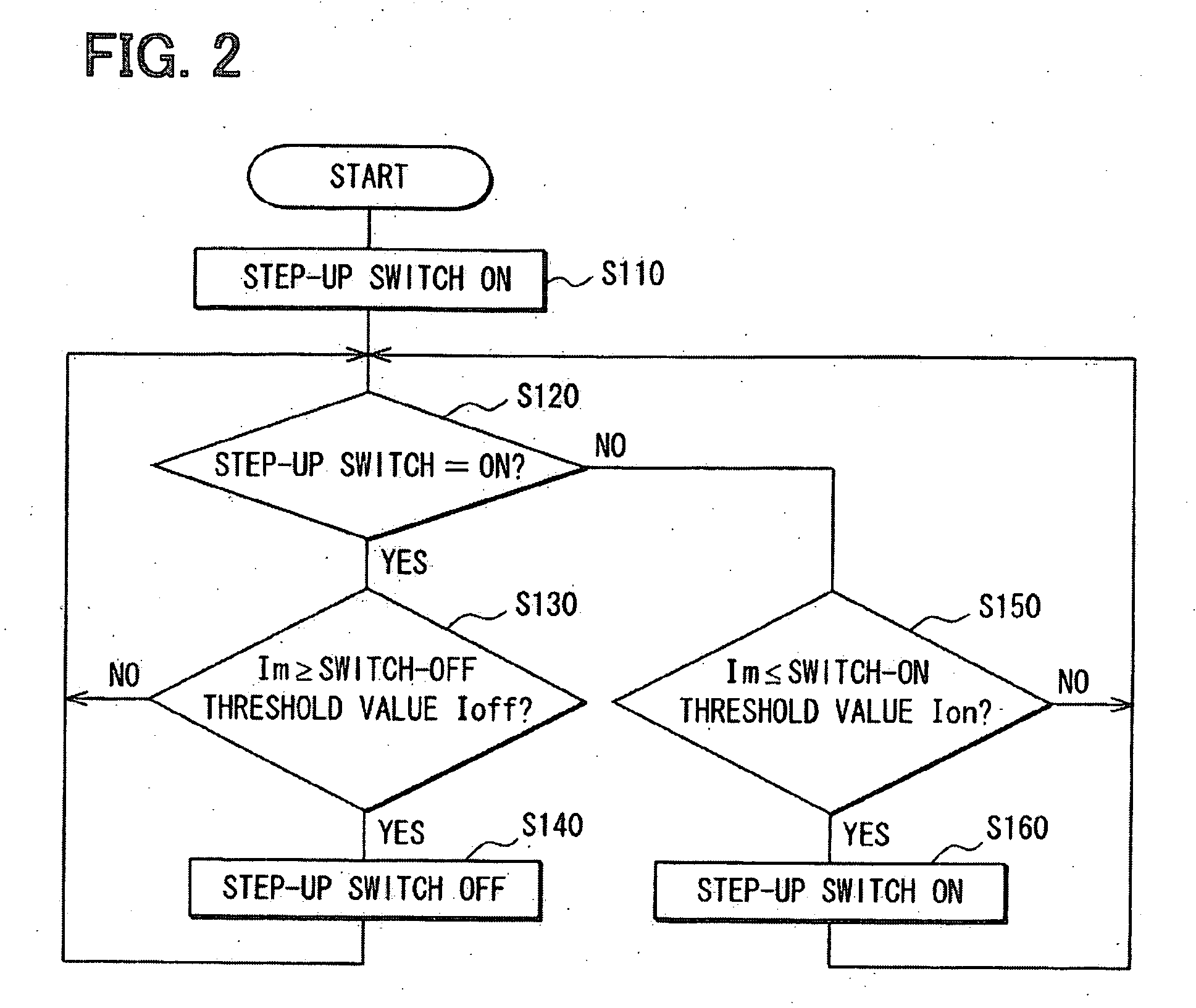Power supply voltage booster
a technology of power supply voltage and booster, which is applied in the direction of power conversion systems, electrical control, instruments, etc., can solve the problems of inaccurate operation of fuel injection valve, and achieve the effects of increasing the energy charged to the capacitor, and increasing the charging energy per fixed tim
- Summary
- Abstract
- Description
- Claims
- Application Information
AI Technical Summary
Benefits of technology
Problems solved by technology
Method used
Image
Examples
first embodiment
[0091]FIG. 1 is a schematic diagram illustrating a fuel injection controller 100 of a first embodiment where an exemplary injector 101, representing one of the four injectors, and corresponding, for example, to the first cylinder #1, is shown. The driving operation for the injector 101 shown as an example will be described below.
[0092]The injector 101 is of a known solenoid type, which includes a solenoid as a valve opening actuator. Upon application of current to a coil 101a of the solenoid built in the injector 101, the solenoid moves the valve body to the open position, so that the injector 101 is placed in the valve-open mode so as to inject fuel. Upon the ceasing of the application of current to the coil 101a, the valve body moves back to the closed position, so that the injector 101 is placed in the valve-closed mode so as to stop injecting the fuel.
[0093]The fuel injection controller 100 is equipped with a voltage boosting circuit 50 having the same circuit configuration as t...
second embodiment
[0122]The structural components in the following description are designated by using the same reference numerals and phrases as those in a first embodiment, and the other embodiments to be described in greater detail hereinafter.
[0123]The fuel injection controller 100 of a second embodiment differs from the fuel injection controller 100 of a first embodiment in that the charging control circuit 110 of the voltage boosting circuit 50 performs processing of setting the switch-on threshold value as illustrated in FIG. 8A in parallel with the processing of the voltage boost switching control illustrated in FIG. 2.
[0124]As shown in FIG. 8A, the charging control circuit 110 detects the battery voltage VB at S210, and then sets a switch-on threshold value Ion for use in the voltage-boost switching control in accordance with the detected value of the battery voltage VB at S230. Specifically, as shown in FIG. 8B, the lower the battery voltage VB, the higher the value at which the switch-on t...
third embodiment
[0129]The fuel injection controller 100 of a third embodiment differs from the fuel injection controller 100 of a first embodiment in at least the following two points.
[0130]First, the charging control circuit 110 of the voltage boosting circuit 50 performs processing of the voltage-boost switching control as shown in FIG. 10 instead of the processing of the voltage-boost switching control as shown in FIG. 2. The charging control circuit 110 turns on the step-up switch T0 at the start of the voltage-boost switching control at S3310. Upon determining that the step-up switch T0 is turned on, corresponding to YES at S320, the charging control circuit 110 waits until an ON elapsed time since the last operation of turning the step-up switch T0 to the on position reaches a time Ton, corresponding to NO at S330. Upon determining that the ON elapsed time reaches the time Ton, corresponding to YES at S330, the charging control circuit 110 turns the step-up switch T0 to the off position at S3...
PUM
 Login to View More
Login to View More Abstract
Description
Claims
Application Information
 Login to View More
Login to View More - R&D
- Intellectual Property
- Life Sciences
- Materials
- Tech Scout
- Unparalleled Data Quality
- Higher Quality Content
- 60% Fewer Hallucinations
Browse by: Latest US Patents, China's latest patents, Technical Efficacy Thesaurus, Application Domain, Technology Topic, Popular Technical Reports.
© 2025 PatSnap. All rights reserved.Legal|Privacy policy|Modern Slavery Act Transparency Statement|Sitemap|About US| Contact US: help@patsnap.com



